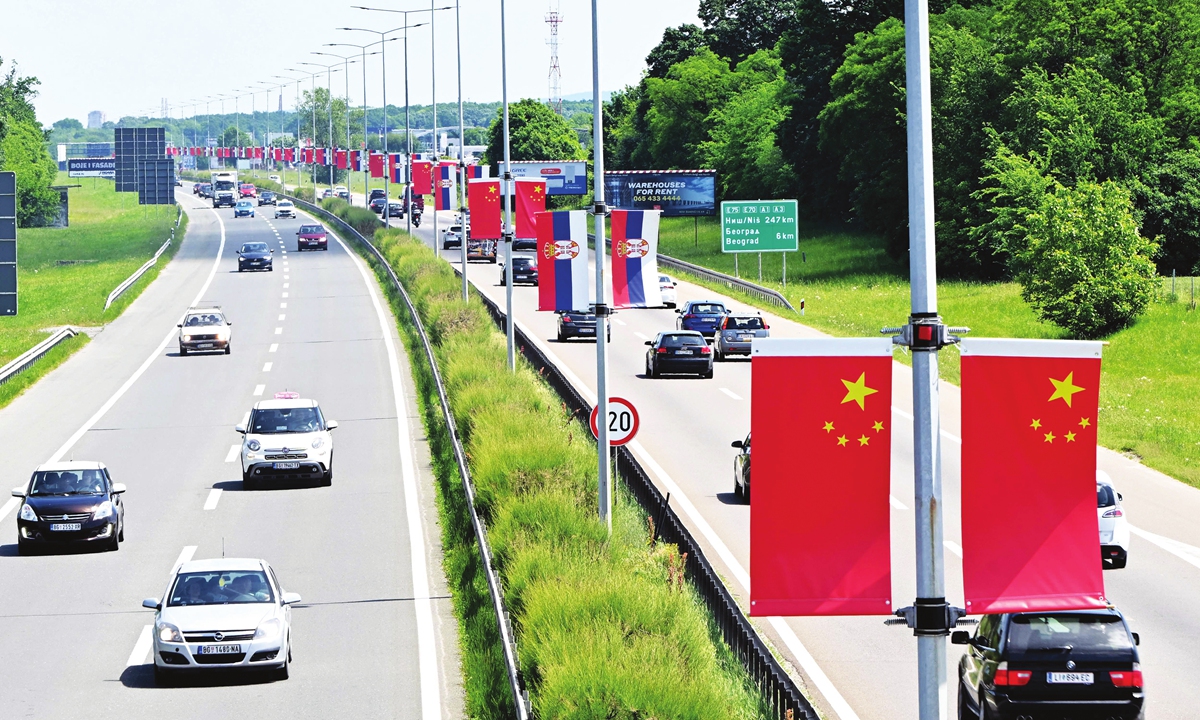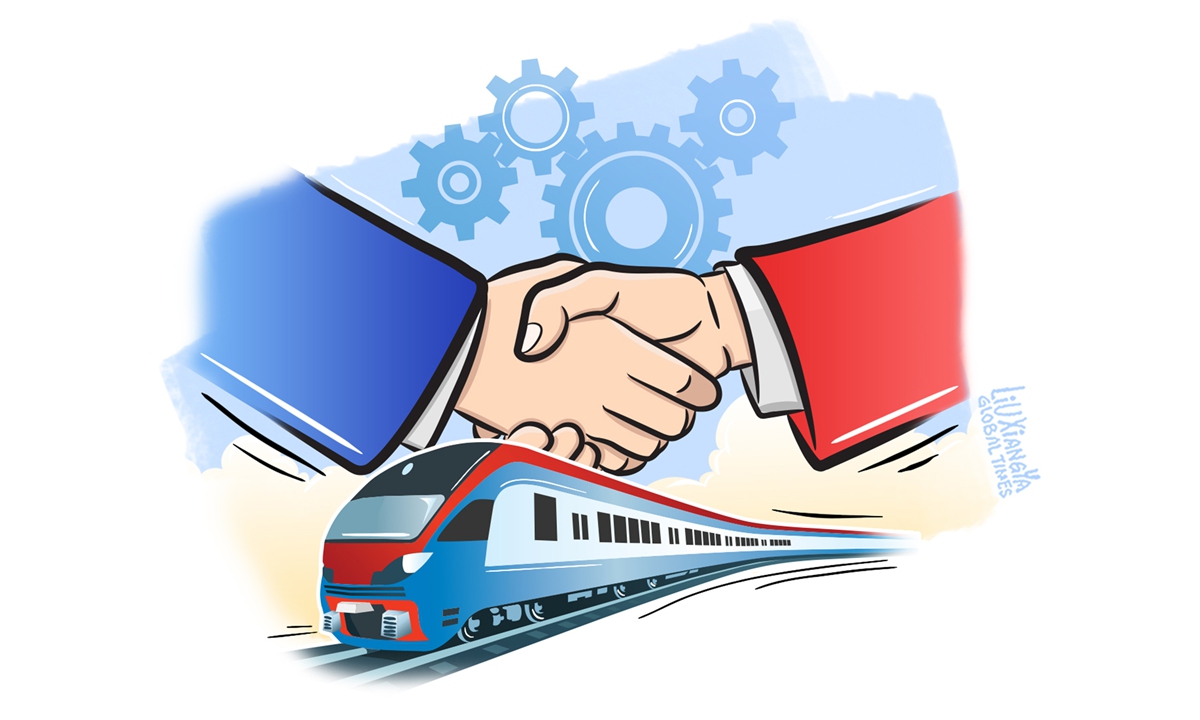China a model for all countries not satisfied with ‘one model fits all’ solutions: Serbian scholar

A national flag of China is displayed on the Western City Gate skyscraper, ahead of the state visit of Chinese President Xi Jinping, in Belgrade, Serbia, May 7, 2024. Photo: Getty lmages
Editor's Note:
Serbia is the second stop of Chinese President Xi Jinping's ongoing visit to Europe. China and Serbia have long been renowned for their "ironclad friendship." What is the key to the success of the China-Serbia relationship, and what insights does it offer for China-Europe relations? Global Times (GT) reporter Ma Ruiqian talked to Ivona Ladjevac (Ladjevac), Deputy Director at Institute of International Politics and Economics in Belgrade, on these issues.
GT: What kind of momentum do you think President Xi's visit will inject into the bilateral relationship?
Ladjevac: Taking into account the quality of the existing relations between Serbia and China, the decision to visit Serbia isn't surprising. This decision signifies the place that Serbia holds in Chinese foreign policy, which has been proven by President Xi's second visit in eight years. This visit will open a new chapter in the bilateral relations of the two countries, which will start to develop even in areas that were not prioritized previously - such as high technologies, green energy and medical research.
GT: How do you evaluate the development and exchanges between China and Serbia over the past years? What opportunities do you think a developing China can bring to Serbia and Europe?
Ladjevac: From the moment of establishing diplomatic relations, both the Socialist Federal Republic of Yugoslavia and later the Republic of Serbia as its successor, paid significant attention to developing their relations with the People's Republic of China. For Serbia, there is no doubt that China is one of the major players in international relations. The two countries developed their relations based on the principles of equality and mutual respect without interfering in each other's internal affairs, which over the decades proved to be a tried and tested recipe for building friendly relations.
A developing China can bring more not only to Serbia and Europe but also to the entire world, due to the rich experience it gained in the process of modernization. China became a model country for all countries that are not satisfied with "one model fits all" solutions.
GT: China and Serbia are "ironclad friends" having stood together through thick and thin. What do you think is the key to the success of the China-Serbia relationship? What insights does the China-Serbia relationship offer for China-Europe relations?
Ladjevac: I can lean on previous statements, saying that treating others as you would like to be treated is the only way to build a fair and healthy relationship. This is not true only in our personal lives, it also applies to international relations as well. In my opinion, other countries can learn a lot from the China-Serbia relationship, which is one of openness and trust.
GT: In October 2023, China and Serbia signed a free trade agreement (FTA), which became China's first free trade agreement with a Central and Eastern European country. How do you view the importance of trade cooperation between China and Europe, including China and Serbia? What is your perspective on decoupling and de-risking?
Ladjevac: No matter the undeniable disproportion between China and Serbia (population, territory, size of economy), the fact that the FTA with China includes only Serbia, Switzerland, Iceland and Georgia in Europe, says a lot. It is expected that the full results will become known five to ten years after the FTA came into force.
The Serbian market isn't big, but Serbia has several preferential agreements with other countries and regional organizations which can also be utilized under the FTA, so China can also place its products in those markets. Serbia is highly interested in a greater presence on the Chinese market, and in attracting more Chinese SMEs to invest in Serbia.
GT: How do you view the impact of the tensions between China and the US on cooperation between Serbia and other European countries with China? To what extent do you think Europe can reduce its dependence on the US?
Ladjevac: Well, Serbia definitely is not among the countries that would be affected by tensions between China and the US or between China and the EU. It is true that we are under great pressure because of our cooperation with both China and Russia, but that is something we are used to. Again, the problem will only arise from disrespecting sovereignty and breaching the principle of non-interference in internal affairs.
At this moment, I don't see any political will in Brussels to reduce its dependence on the US. I'm afraid that blindly following US foreign policy will further deepen the current economic crisis in the EU.
GT: You have mentioned that a fundamental issue in today's world is the lack of sufficient cooperation and an urgent desire for multilateralism. From your observations, what is the genuine willingness of the European people to cooperate with China in this regard? What do you see as the dominant trend in current and future China-Europe relations: de-risk or cooperation?
Ladjevac: There are a lot of examples of successful cooperation between European and Chinese enterprises. The same can be said for people-to-people relations. But, unfortunately, everything is in the hands of the EU political elite and its decisions. In spite of being aware of the importance of the Comprehensive Agreement on Investment, they block it due to "concerns with the state of human rights."
In my opinion, cooperation is a must for all actors in international affairs, but there should also be a return to international law and the guiding principles of the UN.



